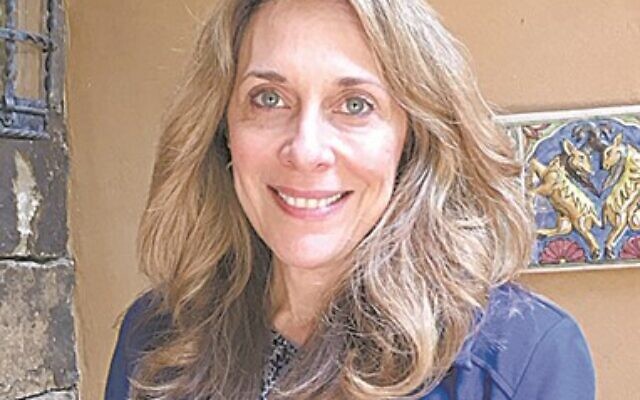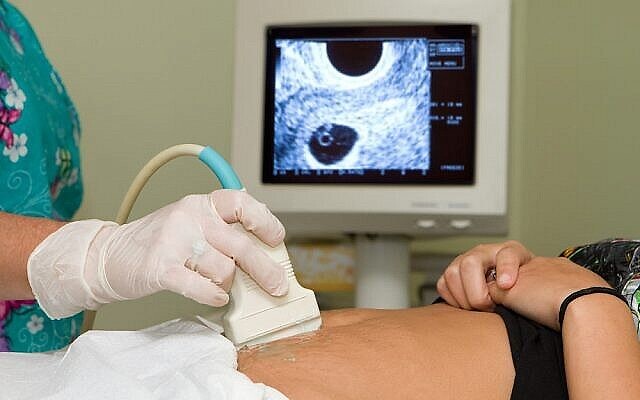Israel to Ease Access to Legal Abortions
At same time, States in U.S. are passing laws to restrict the medical procedure, Israel looks to give easy access to them.
Abortion – that controversial issue that divides genders, people of different religions and different political persuasions – continues to unite most Jews. That’s true in the U.S., where women’s groups like the National Council of Jewish Women are at the forefront of fighting for abortion access, to Israel where Health Minister Nitzan Horowitz recently announced that he plans to make it easier for Israeli women to end their pregnancies.
Horowitz’s statement came about the same time as the U.S. Supreme Court heard arguments in the Mississippi case that would severely restrict abortions and weaken or destroy a standing right upheld in the 1973 landmark Roe v. Wade decision. Days later, the U.S. Supreme Court again allowed to stand a precedent-defying Texas law that limits women’s access to abortion in that state after six weeks.
Under current Israeli laws, abortions are granted by a three-member pregnancy termination committee within a hospital. Horowitz not only wants to end attempts by the committees to dissuade women from having abortions, but, in addition, lawmakers from his party plan to introduce legislation that would end women’s need to get committee approval for abortions within the first 12 weeks of pregnancy.
The Health Ministry also hopes to remove some barriers to abortions that include questioning the motives behind the request to terminate a pregnancy. “It should be a given that the rights to a woman’s body are the woman’s alone,” said Horowitz in a statement to the Israeli news site Ynet News. “Any decision, or medical procedure, such as the choice of whether to perform an abortion, must be in the hands of the woman. We have no moral right to decide for her how to deal with an unwanted pregnancy.”
In Israel, some 90 percent of applications for abortions are granted. The procedure is subsidized or free through the national health system and, as of 2014, free for women ages 18 to 33.
Notably, even Catholic countries like Ireland and Mexico have legalized abortions.
Dr. Mimi Zieman, who is an Atlanta obstetrician and gynecologist active in the National Council of Jewish Women Atlanta Division, contends that the new U.S. laws abolishing abortion rights are “based on a Christian approach. The Jewish approach to abortion is different.”
According to NCJW, Jewish sources explicitly state that abortion is not only permitted but is required should the pregnancy endanger the life or health of the pregnant individual. And health is generally interpreted to include psychological health as well as physical health.

Zieman notes that “the risk of maternal mortality is 20 times higher if the woman carries the baby to full term” than if she has an abortion. “There are all kinds of risks from pregnancy, not just death,” she adds.
Moreover, under Jewish law, a fetus is not considered a person and doesn’t have the same rights as one who is already alive. In the Book of Exodus, feticide is not treated as murder. And the Talmud defines life as beginning when the baby’s head emerges from the mother’s body.
The latest Pew Religious Landscape Study, from 2014, found that 83 percent of Jews surveyed supported legal abortion in most or all cases – more than any other religious group surveyed.
Thus, one of the arguments made by many Jews is that abortion is not only a medical issue, but a values issue. NCJW believes, as the First Amendment to the U.S. Constitution guarantees, no one religion should be enshrined in law or dictate public policy on any issue — including abortion.
NCJW is urging the U.S. Senate to follow the U.S. House of Representatives in passing the Women’s Health Protection Act which would protect the right to abortion access across the country. “We will continue to advocate until every person has the freedom to make their own moral and faith-informed decisions about their body, health and future,” states Sheila Katz, NCJW CEO.
An NCJW campaign called 73Forward – in recognition of the 1973 Roe v. Wade court decision – is gathering support from Jews who are secular all the way to Orthodox to defend abortion access from an explicitly Jewish perspective.
“If the Supreme Court chooses to overturn Roe v. Wade, they will have chosen to elevate Christian faith-based teachings above science and above the faiths of other religions,” said Valerie Habif, co-founder of the Jewish Democratic Women’s Salon in Atlanta.
“Reproductive justice is not and should not be a partisan issue because unplanned pregnancies affect women of both parties equally,” Habif emphasized. “The belief about when life begins is ultimately one of faith not of science, and the Jewish community should be doing everything we can do to protect America’s separation of church and state. Women need to have the ultimate decision about control of their own reproduction, separate and apart from any governmental body. This is no less true in Israel than it is in the U.S.”
- Jan Jaben-Eilon
- Israel news
- News
- Dr. Mimi Zieman
- Abortion
- Israel
- United States
- Medical Procedure
- National Council of Jewish Women
- Nitzan Horowitz
- pregnancy
- U.S. Supreme Court
- Mississippi
- Texas
- Roe v. Wade
- Israeli law
- pregnancy termination committee
- Health Ministry
- unwanted pregnancy
- national health system
- ireland
- Mexico
- National Council of Jewish Women – Atlanta
- Catholic
- jewish
- Christian
- psychological health
- Physical Health
- Jewish law
- fetus
- Book of Exodus
- Talmud
- Pew Religious Landscape Study
- legal abortion
- First Amendment
- U.S. Constitution
- religion
- public policy
- U.S. Senate
- U.S. House of Representatives
- Women’s Health Protection Act
- Sheila Katz
- 73Forward
- Christian faith-based teachings
- science
- faiths
- religions
- Valerie Habif
- Jewish Democratic Women's Salon
- Reproductive Justice
- jewish community
- separation of church and state




comments